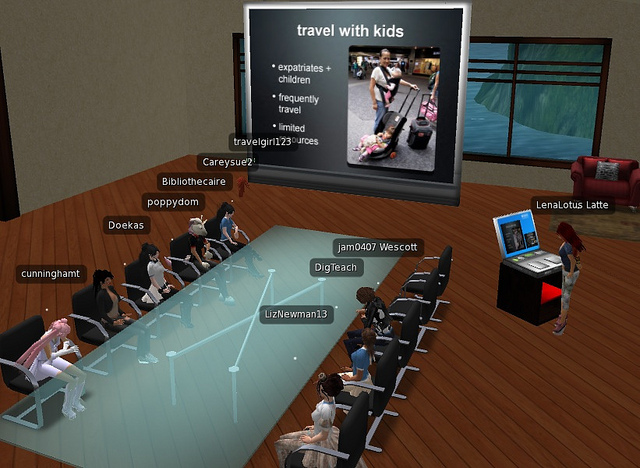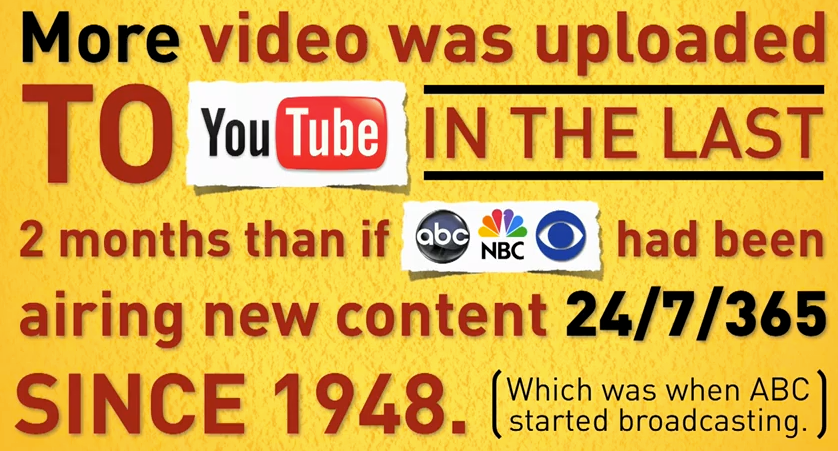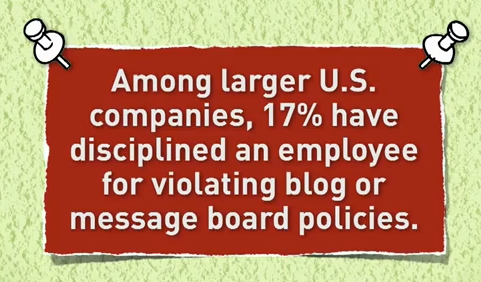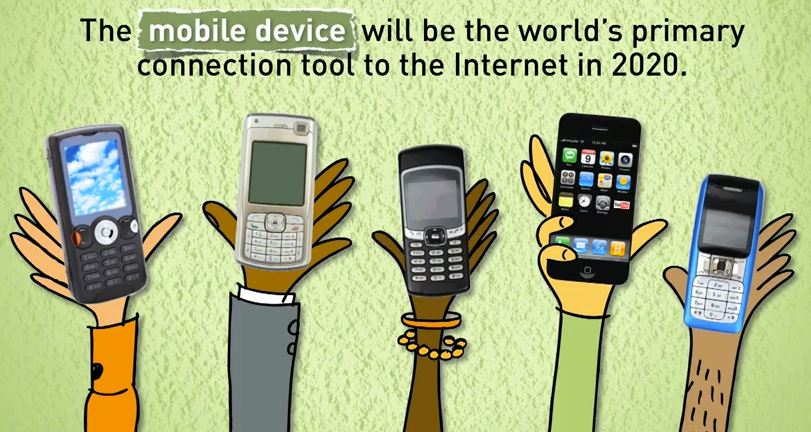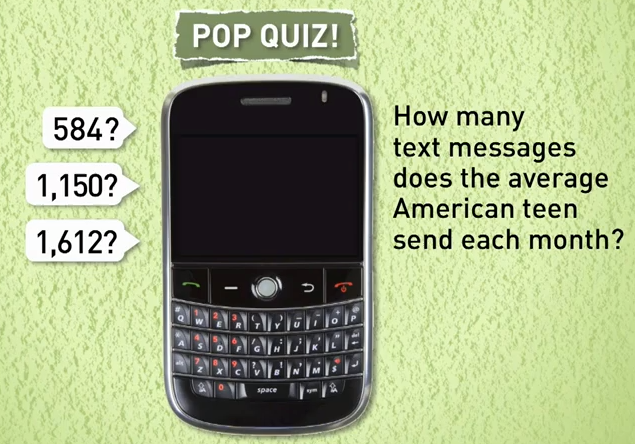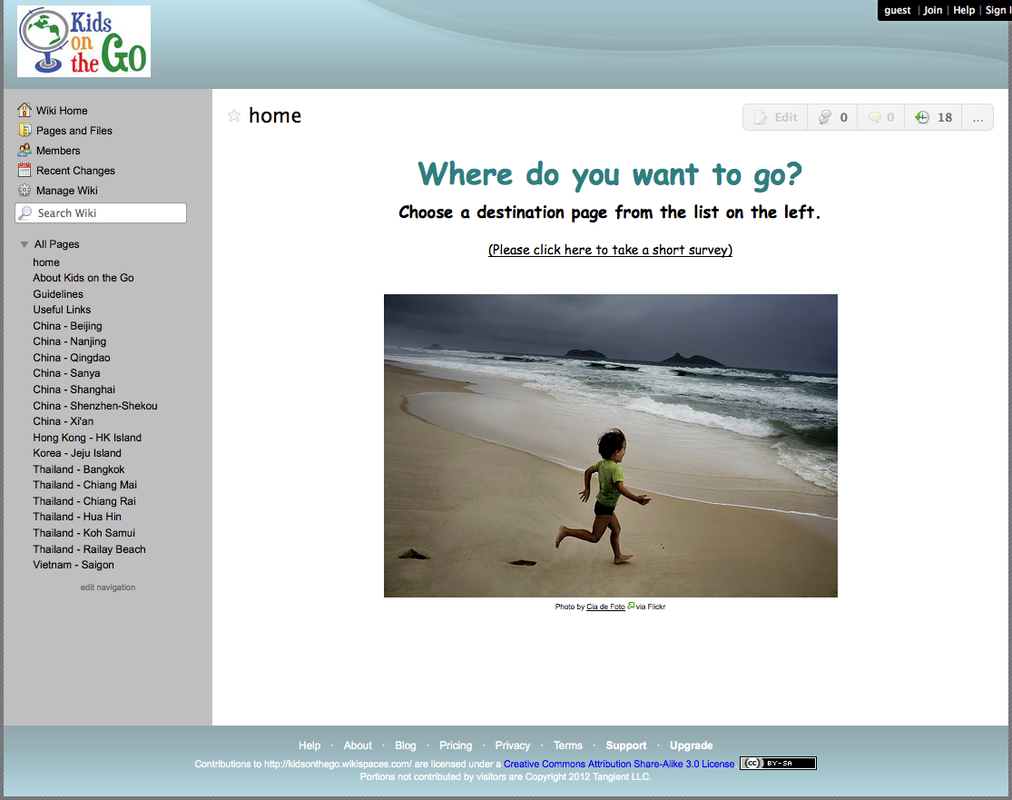Througout the INF506 subject, there were various opportunities to explore the capabilities of Second Life (SL). Personally, I have been aware of SL’s existence for many years but never engaged in it because a) I wasn’t sure what benefits it had to offer, and b) I didn’t have the time to commit to a second life when there didn’t seem to be enough time in my first life. My first was an orientation to SL with xxx, where I was shown how to manage the basics. My second was as a presenter for sharing my work from INF506’s first assignment.
I believe Second Life is about communities. It is a useful tool for bringing people together, much like Facebook or Myspace. The difference, however, is that rather than interacting through text, SL users interact virtually through avatar behavior, chat and voice conversation. It is a significantly more engaging experience. Using SL made it fun to participate in a group event because I could see what other people were doing. Giving a presentation was a familiar experience compared to something like Blackboard Collaborate, because in SL you can see your audience. I could see libraries using SL as a forum for meetings, such as for planning or professional development. It is particularly conducive to hosting a large audience, as other programs like Google Talk and Skype are limited in audience size. Further, SL is conducive to projects involving floorplans, layouts, and simulations because of the virtual experiences possible.
I have found SL to be a fun, but challenging learning tool. Today, I am aware of the benefits SL has to offer, and am eager to explore the different islands and groups. However, I believe that my participation will have to wait until I have available time to commit to it. SL is not a tool that fits into your existing life. The learning curve is high, where users must commit time to manipulating settings, troubleshooting, and getting oriented. While it is accomplishable, there is far too much technical detail to attend to in order to have a meaningful SL experience. I believe this will prevent many users from participating in SL, and will therefore make it a difficult tool to use for library services because there are easier (though less interesting) tools available.
http://www.flickr.com/photos/careyque/6759649601
_In watching Did You Know 4.0, I selected a the following trends as examples that can impact digital citizenship. They have been categorized into different elements of information policy. Information Literacy: _There is exponential growth in the amount of information available to people. This does not necessarily mean that all information is good. With the growth of digital advertising and the sheer volume of videos on Youtube (some excellent, some not), participants in social media may have a different purpose than some of us might expect. Social media is shifting the evaluation of information from the contributor (as with television networks, or publishers) to the user. It requires that users have skills which allow them to consider the intent and appropriateness of the information they encounter.
Poor judgement:
_In these cases, users disregard policy. It seems that technology has depersonalized interactions, giving people the comfort to conduct themselves in ways they might not do in “real life.” I know many people who download music without paying for it, yet those same people would never walk into a store and steal a CD. In social matters, there are many people who “say” things online, but would never say such things in person. While policy is important, they are most effective when enforced.
Access/Connectedness:
_I believe these two trends are exmplify the human need to be connected. To support this, one infographic stated that 2/3 of Americans sleep with mobile devices at their bedside (guilty). Mobile devices do what our computers did before and so much more, only today it fits in our pocket. The innovation of mobile devices allows people to be social, and access information and knowledge. I believe this innovation and easy access to information allows for learning to move away from solely knowledge and on to more complex problems. Schools must embrace this need for connectedness, and leverage it to support communities in learning. Just like many social media tools, I don’t think they can be entirely regulated. Students will do inappropriate things, and policy must enforce those situations. Policy should support their use as a complement to the current system. xplanevisualthinking. (2009). Did You Know 4.0. [video]. Retrieved from http://www.youtube.com/watch?v=6ILQrUrEWe8 Miller, A. (2012). Your first date with online PR [infographic]. Retrieved from http://www.prmarketing.com/blog/your-first-date-with-online-pr/
_I know I haven't written in a while, as things have been ridiculously busy! Not only did I have project 1 to work on (which was turned in yesterday, thank you very much), but it was also the Christmas holidays, recruiting season for international teaching, and I am a mother of two children under 3. 'Nuff said... In any event, the last several weeks have been dedicated to the creation and documentation of Kidsonthego. Kidsonthego (kidsonthego.wikispaces.com) is my social networking project. It has actually been an idea of mine for quite some time, but I've never had any time to act on it. INF506 gave me that push to indulge in my personal interests, and I'm so glad I did. Doing this pilot project, as small as it is, has allowed me to explore topics that I would never have done otherwise. Most of my studies are related to education, and in this case, I was able to create something that supported personal, non-work-related needs. Hey, we all need this sometimes. Kidsonthego is a wiki. It's a place where people who travel with their children can seek out information to plan their trip. People can also visit it mid-trip, or after their journeys to record all the great places they have been. It's not about sharing a traveler's story. It's more about sharing the great places out there to support parents with young children, and encourage their travels. In any event, I put so much time into this site (and continue to do so) because I genuinely feel it serves a purpose to a group of people. I wanted to do a good job, but also had to meet certain academic requirements, so good things all around. Some of the things I really took away from this project, in terms of learning about social networking theory, have to do with the use of technology to support communities, as well as the sociology and psychology behind online communities. I have used many blogs, discussion forums, wikis, platforms like Google docs, and other similar tools for some time. However, I never put formal thought into the way it brings people together, and serve different purposes. It was always somewhat intuitive. My first wiki use was in 2004 (or thereabouts) when a teacher librarian created one so that we could share what resources we were using for certain instructional topics (brilliant and yet so simple). However, it wasn't until I created this project and I investigated the different social media options out there, that I began to understand the capability of the different social media environments. Selfishly, I wanted to search by country, or city, or whatever the destination was, and be able to look at different hotel, restaurant, and activity listings. I've been such a fan (and sometimes contributor) of sites like Tripadvisor, or Cityweekend, that I really just wanted my own version of one of these, but one that was geared toward travel with small children in Asia. While user profiles are a part of these communities, these site are centered more around the information, rather than the users. I discovered that creating something as elaborate as the sites mentioned above would probably take some professional skill and a bit of cash (I was hoping for something free). Wikis were a simple way to do the same--create a community around the content. I never thought about studying this social direction of technology, but there's a lot out there! I did a lot of reading on wiki technology. and the factors that influence user participation. Not surprisingly, much of the literature mentioned users tendencies to free ride on informational social media sites. Wikis are at the heart of this. Users often browse and explore the information, but contributing is a different story. A great example of this is how whenever I have a technical need (software not working, or maybe I don't know how to do something), I troll the web for websites, blogs, discussion forums, etc. I am usually able to find the answer because someone, somewhere has posted the question, and some else had answered it. Participation in social media. Thank you social media users for helping me get my data connected on my Android phone in China, or teaching me all about locked and unlocked phones and SIM cards in the US and China, or for (and this is a big one) enabling me how to use taobao.com (an online shopping site entirely in Chinese)! I also rely heavily on participants with social media to help me plan my travels (thank you Tripadvisor.com users!). I am guilty of taking this free ride, quite often. However, I have come to realize that I take so much from online communities, so I should try and give back when I can. Experts in the field refer to this "interest" as reciprocity, and apparently I am not alone. Who knew that this has been studied?! People participate in social media for many reasons. Some studies report that users participate for the social good, and the knowledge that it brings to many. However, some studies do show that personal or individual motivations (e.g. contributing to Wikipedia to practice and improve English) are also a very strong factor. So my travel wiki, Kidsonthego, is sitting there, being viewed and updated by some. It needs more information and definitely more users. I want to jump in (because I love to share this information, for the greater good of course... and it's just fun to create), but I also have two more papers due in two weeks! I can only hope that Kidsonthego can find some dedicated users (and fewer digital loafers) to create that critical mass needed to keep the wiki alive. I plan to work on that when this term ends in two weeks! Bibliography:Gao, Q., Dai, Y., Fan, Z., & Kang, R. (2010). Understanding factors affecting perceived sociability of social software. Computers in Human Behavior, 26(6), 1846-1861. doi:10.1016/j.chb.2010.07.022 Parra-López, E., Bulchand-Gidumal, J., Gutiérrez-Taño, D., & Díaz-Armas, R. (2011). Intentions to use social media in organizing and taking vacation trips. Computers in Human Behavior, 27(2), 640-654. doi:10.1016/j.chb.2010.05.022 Prasarnphanich, P. & Wagner, C. (2011). Explaining the sustainability of digital ecosystems based on the wiki model through critical-mass theory. IEEE Transactions on Industrial Electronics, 58(6), 2065-2072. doi:10.1109/TIE.2009.2027248 Shu, W., & Chuang, Y. (2011). The behavior of wiki users. Social Behavior & Personality: An International Journal, 39(6), 851-864. doi:10.2224/sbp.2011.39.6.851 Utecht, J. (2010). Reach: Building communities and networks for professional development. Retrieved from http://jeffutecht.com. Wagner, C. & Prasarnphanich, P. (2007). Innovating collaborative content creation: The role of altruism and wiki technology., 2007. 40th Annual Hawaii International Conference on System Sciences. doi:10.1109/HICSS.2007.277 Yu, T., Lu, L., & Liu, T. (2009) Exploring factors that influence knowledge sharing behavior via weblogs. Computers in Human Behavior, 26(1), 32-41. doi:10.1016/j.chb.2009.08.002
|
